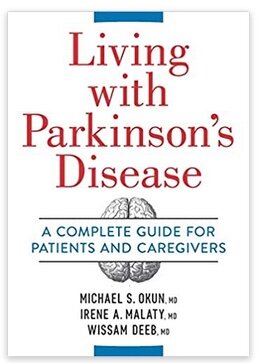A Guide for conversations about COVID-19 vaccine hesitancy: The Living with Parkinson's Tip of the Day
Timothy Callaghan at the Texas A&M University School of Public Health published a study in Social Science and Medicine on January 6, 2021 addressing the reasons why folks maybe hesitant to receive the COVID-19 vaccination.
Callaghan and colleagues stressed a need to build trust with the community. These are some of the points Callaghan and their colleagues uncovered:
Likelihood of vaccine refusal was highest among Black Americans, women and conservatives.
Women were 71 percent more likely to not to pursue vaccination.
Blacks were 41 percent more unlikely to pursue a vaccination.
Political party may play a role as each one-point increase in conservatism increases the odds of vaccine refusal by 18 percent.
Many people have safety concerns.
Many people have effectiveness concerns.
Many people have concerns over a lack of financial resources or health insurance.
More information on COVID-19 vaccine comparisons at parkinsonsecrets.com
What do we recommend in your conversations with people who are hesitant to take the vaccine?
Listen: Listen to everyone’s concerns and do not be dismissive.
Communicate effectively the data on each of the vaccines. Discuss the effectiveness and show real data and real comparisons, as in the chart we provide above.
If injection of genetic material through (mRNA) is a concern, let them know that there are other options coming including the Oxford AstraZenca and Johnson and Johnson vaccines. In China and Russia, vaccines have been designed with inactivated virus much like a flu vaccine. Share with them the outstanding safety record in large clinical trials and now the evolving experience in clinical practice for the many vaccines.
Dialogue about the risk:benefit ratio. Offer them real data on the chances of dying with and without the vaccine. Also share the data on the chances of adverse events from receiving the vaccine.
Try to convince them to keep an open mind and to keep talking to doctors, nurses and medical professionals ,as well as people they trust. It may take multiple conversations to come to a decision and to make sure they understand that you want them to have all the data— before they decide.
If the person has a disease such as Parkinson’s, Alzheimers, Diabetes, heart disease or another condition, direct them to a leading foundation like the Parkinson’s Foundation for the specific vaccine recommendations pertinent to your condition. Make sure they get the information on whether the morbidity and mortality are increased in their specific disease— as this may be an important part of establishing the risk:benefit of a vaccine.
Have an open conversation about how their decision to be vaccinated or not vaccinated will impact members of their family and extended family.
Make sure you discuss where and how they will receive the vaccine and whether it will cost anything. In many, if not most cases, the vaccine is available free through health departments (in the USA).
Make sure you ask them for a list of questions important to them about the vaccine and that you provide them with truthful and honest answers.
Read more in the new book by Drs Okun, Malaty and Deeb: Living with Parkinson’s (Robert Rose, 2020).




